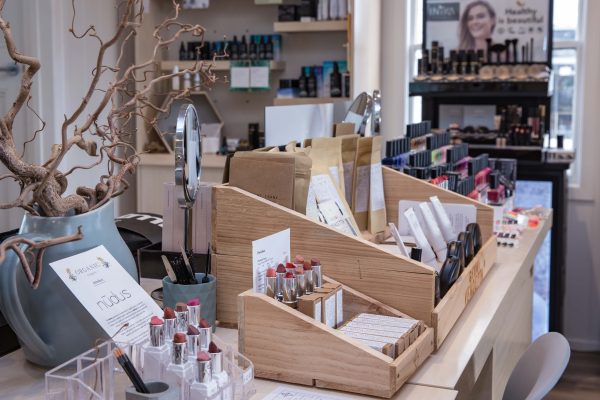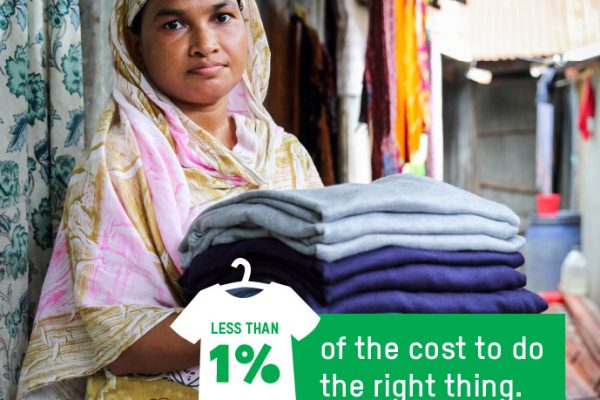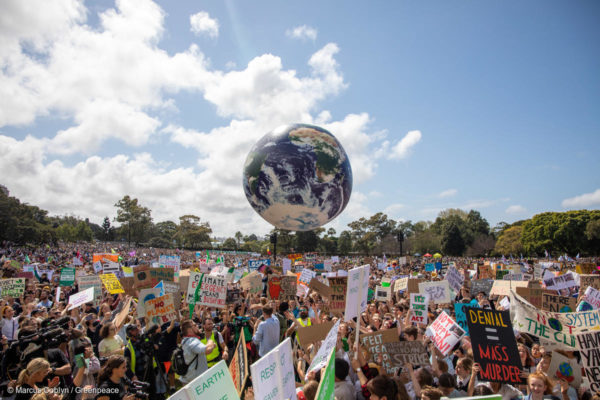ECO-ANXIETY. Feeling overwhelmed by the challenges of climate change and worried about the environmental crisis. There is immense pain involved in recognising the realities of global warming.
Even those of us not yet living directly in the path of climate change are suffering from watching the impacts of the Climate Crisis unfold and worrying about the future of our planet.
As an eco-activist, there are days when I struggle to stay engaged and keep fighting when I’m gripped with feelings of frustration and hopelessness.
The morning scroll through Facebook with daily headlines screaming about the impacts of climate change is depressing on a good day and terrifying at worst. It’s tempting to want to ignore all the bad news in an effort to stay sane, but that’s not the answer.

How can we deal with eco-anxiety or Climate Despair?
My personal tips
Connect with people and get involved. The best way to fight feelings of helplessness is to increase feelings of empowerment by getting informed and getting involved. Connecting and working with other people to address the big issues helps us have a greater impact, and also provides social support that can help us deal with negative feelings.
Get outside and reconnect with nature. We already know that nature is essential for our health and happiness. But what it can also do is help you feel more connected to the very earth we are trying to protect. Walk barefoot on the grass, swim in a lake or ocean, go bushwalking, hike, roll around in a park. Do what you need to revive your connection with nature to help keep you inspired and motivated to keep fighting.
Know that the world’s problems are not yours to solve alone. There are so many social and environmental injustices happening around us; it’s easy to fall into the trap of thinking you need to take them all on yourself.
When we try to be everything for everybody, we run the risk of being nothing for nobody. Think about what you are passionate about, the issue that is most important to you and what you’re motivated to work on.
You’ll be less stressed, and when you go back to the first point, you’ll also be surrounded by people who are doing the same. Everyone doing their part focusing their time, energy, unique voice, and skills to the areas where they can have the greatest impact.
I also put a call out on social media to ask our readers how they deal with eco-anxiety.
Here’s what they said
Henrietta – Melbourne
“I was reminded that feeling down and hopeless isn’t helpful to yourself OR the planet. So we’ve just got to focus on the positive things that we CAN do. Spending time with nature and kind people definitely helps.”
Jess – Australia
“I stop reading the news/my Facebook feed and go and spend time in nature.”
Jade – Cairns
“I’m generally quite positive about the steps we’re starting to take, but occasionally anxiety and fear get the better of me. But, coming from a place of fear is going to get us nowhere. Turn that fear around and fight harder, educate one person at a time, change one person’s mind at a time. Show your kids that you’re doing everything you can, and I promise there will be a ripple effect.”
Reader – Australia
“I get more ‘eco fatigue’ like sometimes it’s overwhelming, and I can’t make any choices because every choice impacts the planet and sometimes the answer isn’t easy. Those are stay inside and do nothing days.”
Simon – New Zealand
“How about cultivating an attitude of optimism? Not as a judgment, or a reaction to the world around you, but as a choice, by which you navigate and affect the world around you. In our own experience, the personal benefits of waking up every day and deliberately making that choice are profound.”
Emily – Australia
“I know I’m doing everything I can within my sphere of influence; I have faith that humans have surmounted many challenges in the past.”
Sana – Toronto
“I know that I am doing the best I can to live my life in a way where I know that I am doing good. It can get really tough especially with all that’s going wrong in the world, but you have to remember that there’s still a beauty to life that you have to live and you just want to make sure that every day you are doing the best you possibly can – and you should be proud of that.”
Suzie – Australia
“By connecting with people who care and are helping to create solutions.”
Namrata – India
“Helping one individual believe they can make a difference and reduce their carbon footprint or keep climate change in mind while making a lifestyle choice, that’s something- that’s how change begins. Focusing on that helps. ”
Steff – Queensland
“I keep my end-goal in mind, which is for my children and their children to reach their full potential in life and also enjoy our beautiful planet at its full potential. Every decision I make is guided by this. I find I don’t feel so overwhelmed when I just take it step by step, and remember I can only control my own actions. I try to educate and lead those immediately around me, which will in turn, hopefully, influence those around them.”
Laura – Australia
“I think it is important to shield children from much of the gloomy forecasts – I don’t want them growing up feeling despair.”
Durrah – Australia
“It upsets me most when the children I teach, ask me why people don’t care about the earth. On really bad days, I would take a walk in the bush, swim or surf in the ocean, then come home and think about what else I can do better, make plans and work from there.”
Victoria – Sydney
I break it down into bite-size things that I can be doing every day. Not too many, not too big but a step forward every day, and I focus on finding the good news stories. Humans ARE ingenious in times of crisis and do overcome incredible obstacles, so I like to remind myself of this every day to keep me sane and moving forward with my own contribution.
Valentina – Italy
“The news about the fires in Alaska and Siberia scared me to death, and they came just after Earth Overshoot day. It’s difficult to be optimistic. To deal with all of this, I put more effort into spreading good actions for sustainable living and be the first to be the example. I believe that we can change things together.”
Sarah – Australia
“I’ve created an indoor plant oasis; my home is filled with plants which not only provide us with clean air, but they bring me great joy when the outside world is a little depressing. I enjoy taking cuttings of my plants and sharing them with others too. We further detox by hiking in areas that are still pristine. I also really enjoy bulk food shopping, it makes me feel good wandering around with all of my glass jars to fill. I also stay off social media when I’m down in the dumps about the state the planet is in.”
Amber – Sydney
“I tend to avoid reading stories and news about how bad it is, and look for the stories that are uplifting and about ideas and people making a positive difference, and moving towards adapting our way of life to live in the new version of the future. I also focus on what I can do – joining climate strikes, reducing my family’s consumption, even more, composting, planting in our growing food forest, planting more trees, only buying ethical and eco-friendly products if I do buy something, refilling in bulk and avoiding plastic. Sometimes I do feel despair and intensely sad and SO frustrated at what is going on and what many companies and leaders are doing and not doing, and I think that the grieving process is actually part of the transition – grieving for what we have lost and cannot hope to repair or replace, and then building a new vision for what’s possible.”
Merima – Sydney
“Every time I feel desperate I try to push aside the cloudy thoughts by thinking how far we have come on the eco-consciousness scale and how much more we are doing to be aware and make others around us aware. If I can educate one person on how to recycle, reduce, reuse properly I automatically feel better.”


